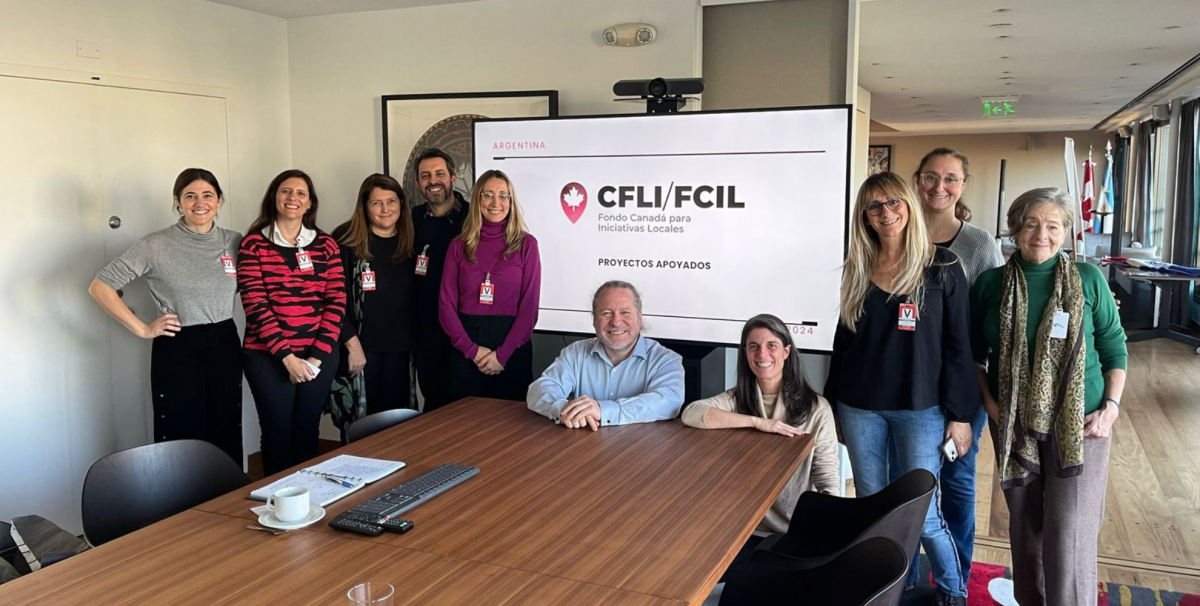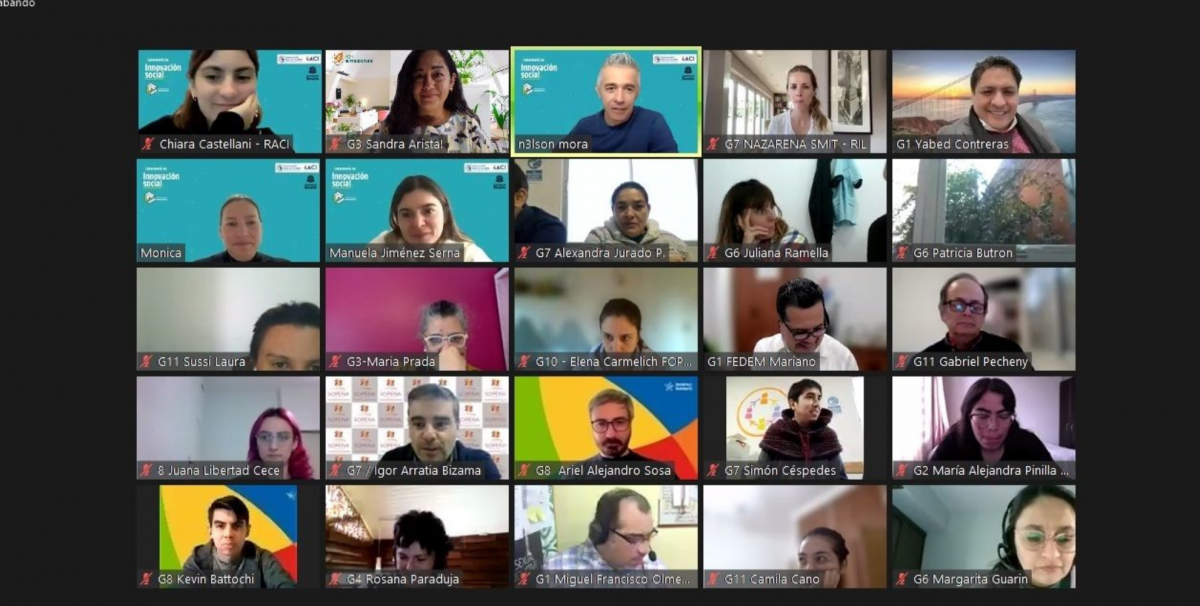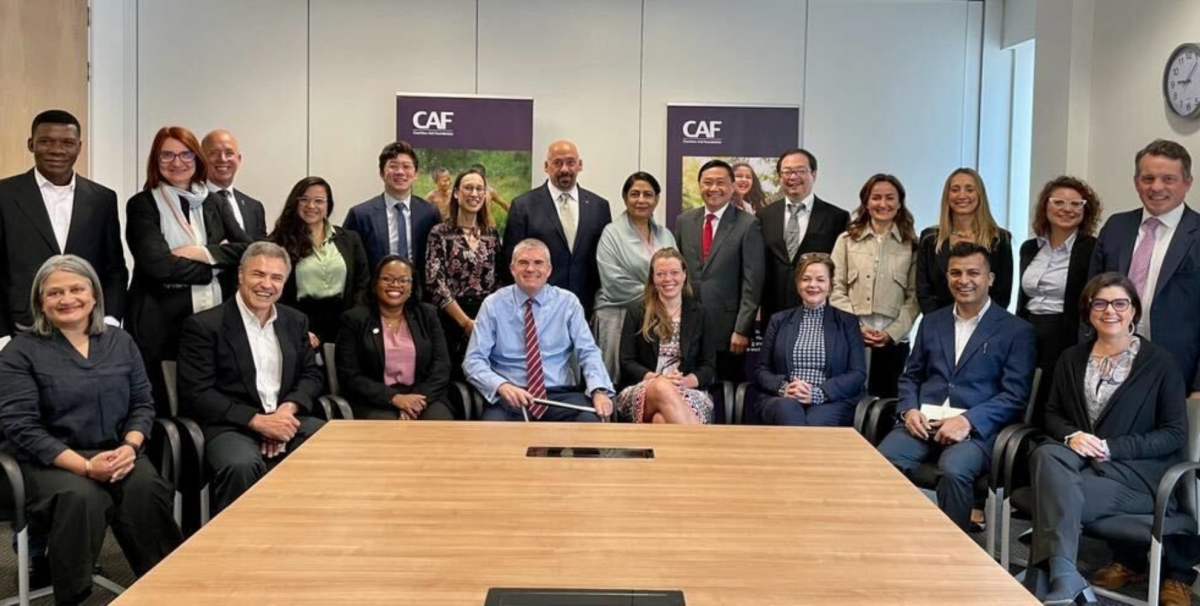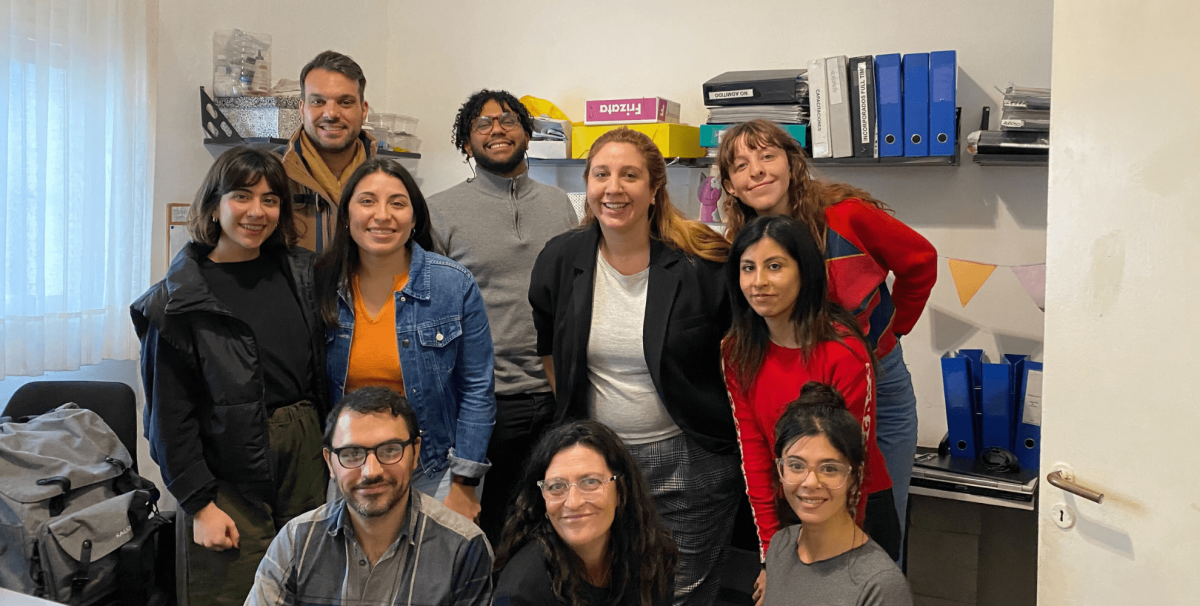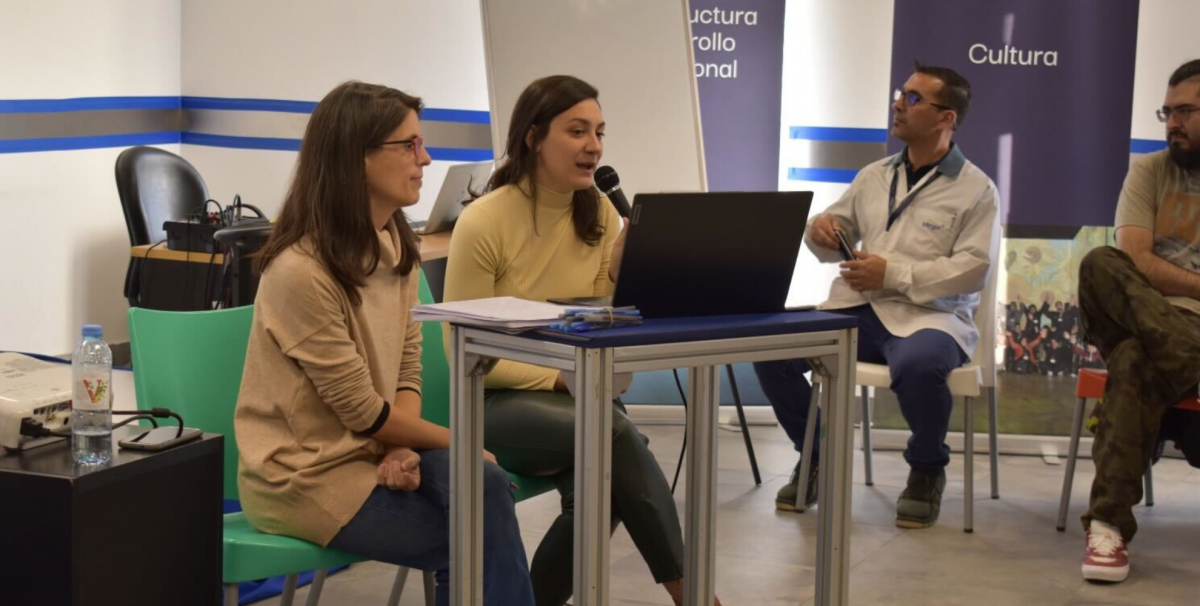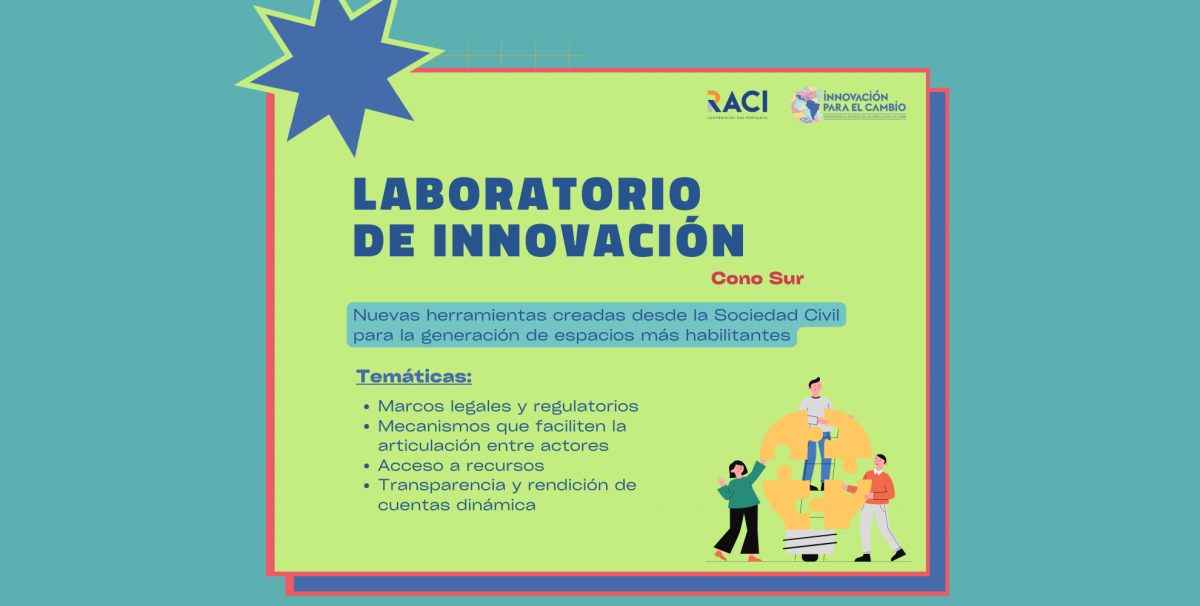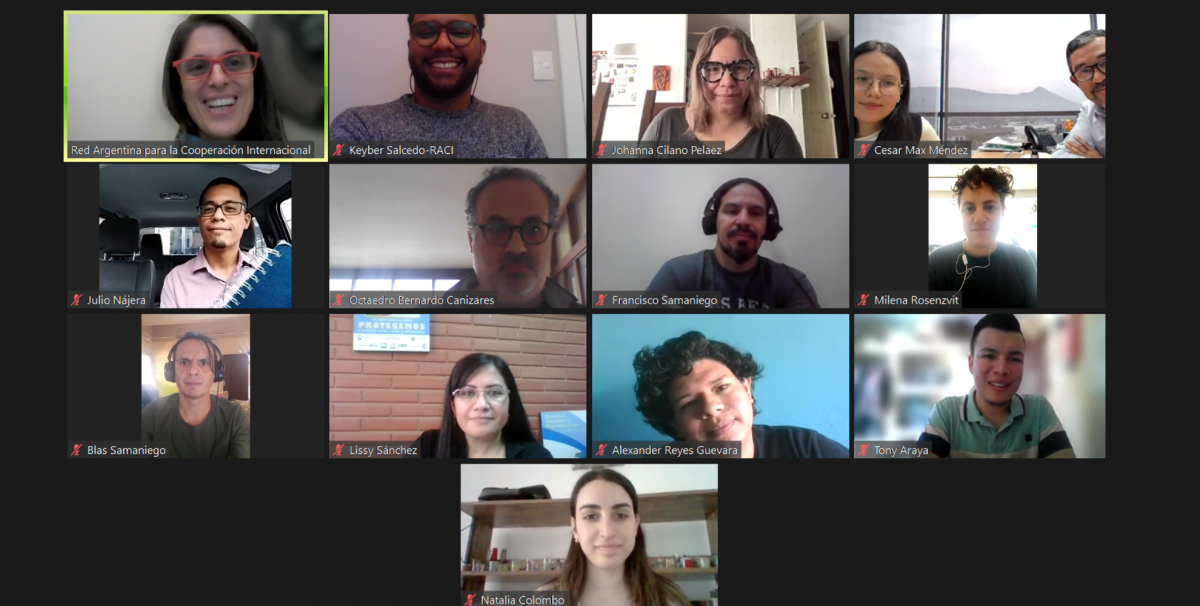AFS FOUNDATION – remote
We virtually visited AFS, an organization committed to cultural exchange and international education. During our visit, we had the opportunity to talk with Michel Thibaud, Director of Institutional Relations for AFS Argentina and Uruguay, who provided us with information about their work.
Since 1947, AFS Intercultural Programs has operated as an international, voluntary, non-governmental, non-profit organization that promotes intercultural learning opportunities to help individuals develop the knowledge, skills, and understanding necessary to create a more just and peaceful world.
Currently, AFS is present in 59 countries and annually involves over 12,000 students and more than 50,000 volunteers worldwide. In Argentina and Uruguay, they gather over 700 volunteers and have over 40 Local Chapters in all provinces.
One of AFS Foundation’s recent updates that we want to share with our network is the launch of their 2023 Effect Scholarship within the framework of the Binational Scholarship Fund. It consists of at least 38 Full Scholarships to travel in 2023 or early 2024. These are school scholarships for young leaders, educators, and Global STEM.
These scholarships provide an opportunity for young people who wish to enrich their education and broaden their horizons through cultural exchange programs.
If you are interested, we invite you to visit their website, where you will find detailed information about the requirements, application deadlines, and the benefits these scholarships can offer.
CULTURA DE TRABAJO – in person
We visited Cultura de trabajo in person, where we were received by part of the team to discuss their projects, the challenges they face, and the activities they carry out through labor initiatives and support aimed at people in situations of socio-housing vulnerability.
Their vision is to be a bridge that contributes to equalizing opportunities and access to employment for all individuals who wish and need to work. From the organization, the team promotes the idea that overcoming poverty requires equal access to job opportunities. Therefore, they aspire to facilitate the means for workers to access employment positions.
Some of the services they provide to the community include pre- and post-employment support, job interview counseling, provision of clothing, tools, and travel expenses.
The visit allowed us to see how they are generating a positive change in organizations through the promotion of an inclusive and collaborative work culture.
SUSTENTABILIDAD SIN FRONTERAS – remote
We were received by the team at Sustentabilidad Sin Fronteras, a non-profit foundation composed of a multidisciplinary team of professionals who develop projects in Latin America to address climate change through awareness-raising and the implementation of adaptation and greenhouse gas mitigation projects, contributing to climate action with a socio-environmental perspective.
Their work ranges from consultancy, report preparation, training, programs, events, advocacy, measurement, and offsetting.
Climate change represents one of the greatest threats to humanity today. It is essential for society to understand its causes and consequences in order to effectively address it. In that sense, Sustainability without Borders is dedicated to disseminating relevant information on this topic with the aim of raising awareness and promoting concrete actions.
One key aspect in the fight against climate change is the reduction of greenhouse gas emissions in the atmosphere. Therefore, they argue that it is crucial for both individuals and companies to know and understand their carbon footprint to measure and evaluate greenhouse gas emissions.
To provide accurate and accessible information, as well as practical tools to help individuals and companies make informed and responsible decisions, they presented their carbon calculator co-developed with ERYX and validated by the BETA Technological Center of the University of Central Catalonia and the University of VIC. This calculator allows individuals, products, or companies to determine their carbon footprint.
To perform the calculation, two types of forms are offered: a simple one that takes about 5 minutes and an advanced one that takes more time and is more comprehensive, with a series of questions covering categories such as transportation, food, lifestyle, services, and personal information.
FUNDACIÓN PARA LA DEMOCRACIA – remote
Our last virtual visit was with the Fundación para la democracia in Rosario. This institution works in the defense of human rights and the strengthening of democracy, committed to fighting urban violence and contemporary slavery.
We had conversations with a significant part of their team, including volunteers and guides who work in their museum, about the challenges facing contemporary democracy and their goals of combating all forms of exploitation.
They shared their experience with the workshops they have conducted in schools to promote empathy, respect, and solidarity from early childhood. They also discussed the organization’s next steps and their new cooperation alliances.
The International Museum for Democracy, located in the Fuentes Palace in Rosario, Santa Fe, is the world’s first private museum that holds special relevance. It is conceived as a space where pluralism and inclusivity are promoted, and where the values of freedom, justice, democracy, and respect for human rights are emphasized. We had the opportunity to take a live virtual tour where we could explore part of the exhibitions and their stories.
Additionally, we shared one of their recent projects: “Proyecto si mata,” a global campaign for the prohibition of the use of rubber or metal pellets against protesters.
This petition aims to eradicate the use of rubber pellets, misleadingly called “non-lethal,” and metal pellets, which are authorized worldwide for crowd control but are used against peaceful civilians to disperse protest environments.
Through the following link, you can access the petition to support the ban.
These visits represent a special moment for RACI as they provide us with the opportunity to connect more directly with the organizations that are part of our network. We are committed to helping, promoting, and expanding the work that these organizations are carrying out.
Thank you to all the member organizations for receiving us!

